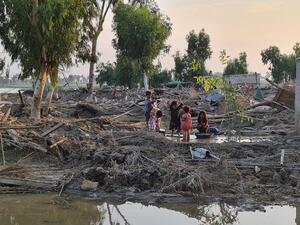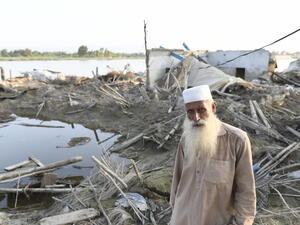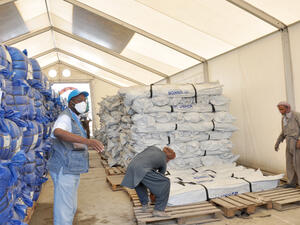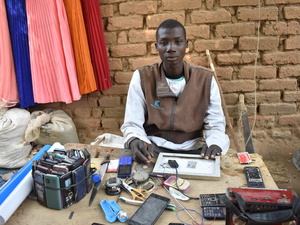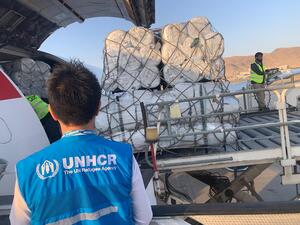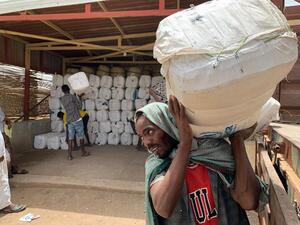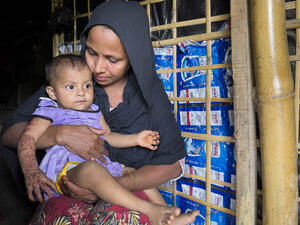Continuing displacement in the Democratic Republic of the Congo
Continuing displacement in the Democratic Republic of the Congo
In the Democratic Republic of the Congo, the number of civilians uprooted in continuing raids by the so-called Democratic Forces for the Liberation of Rwanda (FDLR) in the Lubero area of North Kivu over the last seven weeks has risen to over 100,000. A series of concerted attacks carried out by the rebel group against civilians in the villages of Luofu, Kirumba, Kanyabonga and Kayna near Lubero, 170 kms north of Goma, have left a trail of death and destruction and caused recurrent displacement.
According to the local authorities, the FDLR raided the village of Luofu near Lubero on Friday, killing seven people, including five children, and burning 255 homesteads. The panic-stricken residents spent the night in the bush while some fled to the nearby town of Kirumba. However, the FDLR has reportedly encircled the town of Kirumba since Sunday, threatening to overrun it.
Many of the displaced who are hiding in the forest are without assistance. At the same time, humanitarian agencies are unable to distribute essential aid because of the unpredictable nature of the attacks and the displacement. Another factor that adds to the prevailing insecurity is the FDLR tactic to attack commercial vehicles on the main road linking Lubero to Goma in the south, to Beni in the north, and to the Ugandan border to the east.
The FDLR stepped its reprisal attacks against civilians in North Kivu after the DRC and Rwanda concluded their joint military offensive against the rebel group on 20 January.
With the latest upsurge in violence, we estimate there are now more than 1.4 million displaced across the eastern DRC. Out of this total, almost a million have been driven from their homes in troubled North Kivu province alone by relentless fighting, general lawlessness, looting, destruction of homes and camps, killings and rapes. Many of these people have been displaced more than once and families are often separated. This general lawlessness and insecurity continue to hamper aid operations, along with the sheer size and scope of the displacement crisis in the eastern DRC.
Since the worsening of the situation in North Kivu in mid-2007, we have sent several emergency teams and initiated a camp coordination and management structure in displacement sites set up and run by UNHCR. Presently, we are running 11 such sites for internally displaced people in eastern DRC. Our assistance efforts have included building new camp sites, registration of displaced populations, distribution of aid items such as blankets, plastic sheets, jerry cans, soap, firewood and other items. Our teams also continue to carry out monitoring of the human rights situation of the displaced population at risk in eastern DRC.


